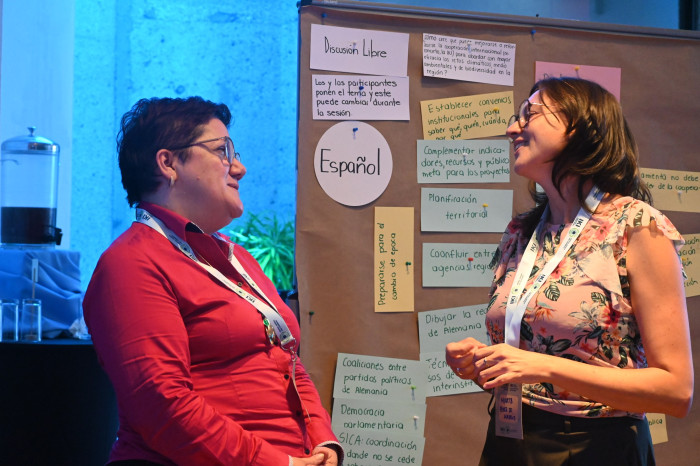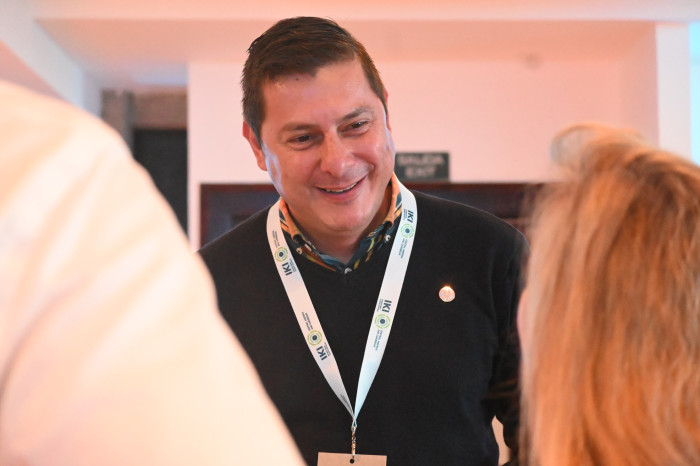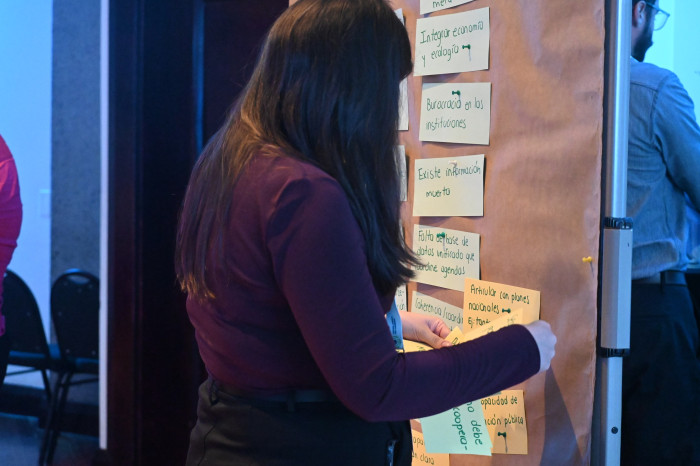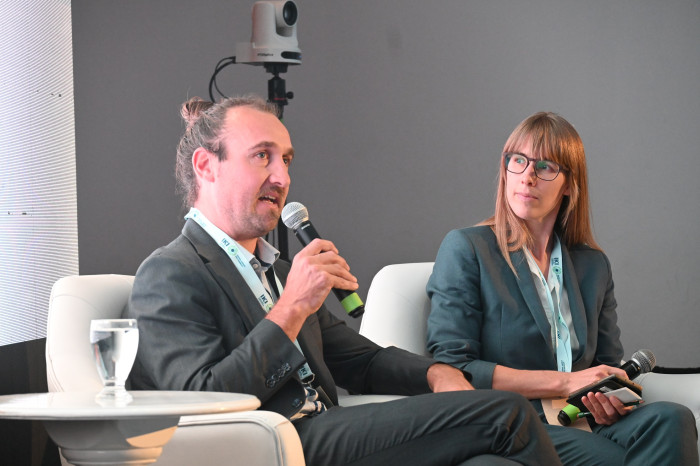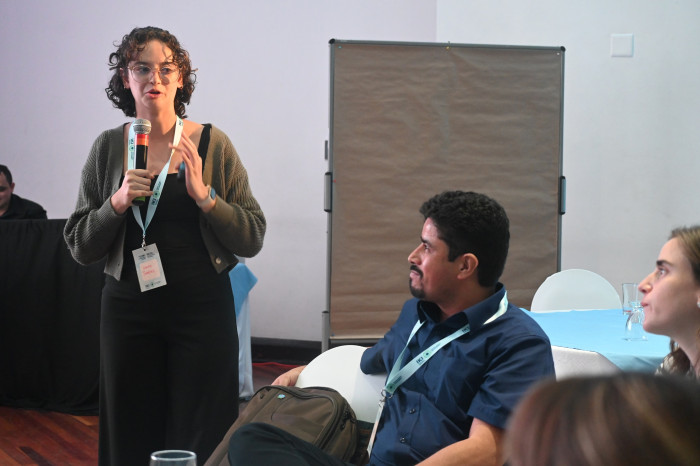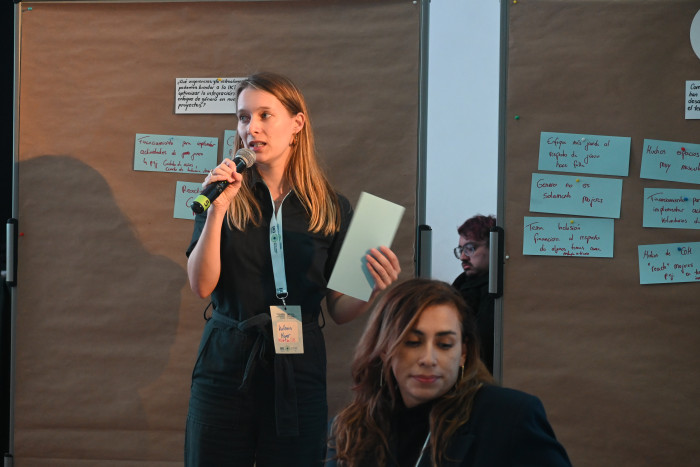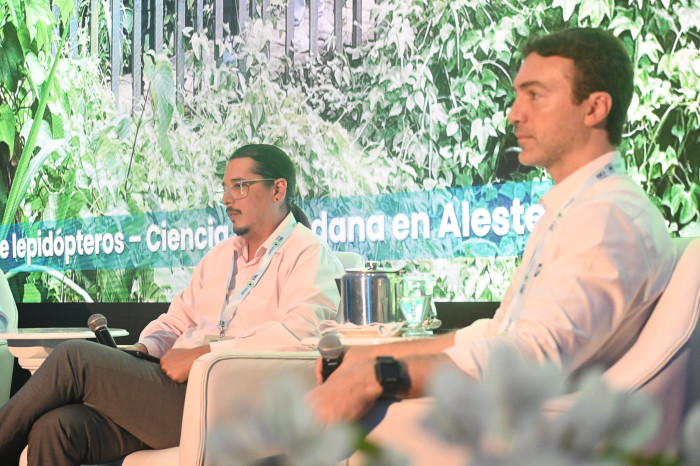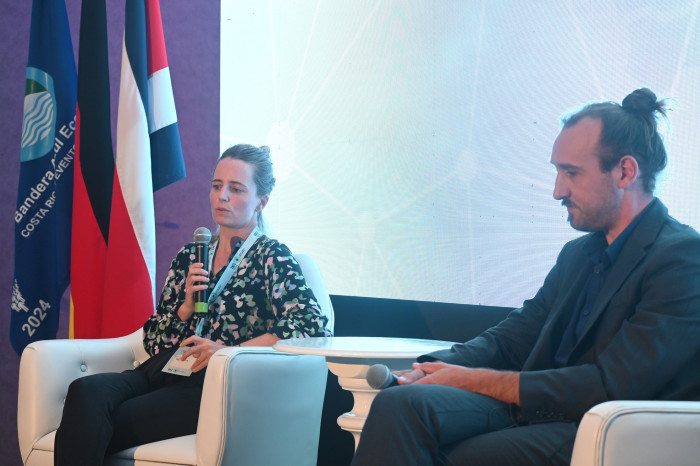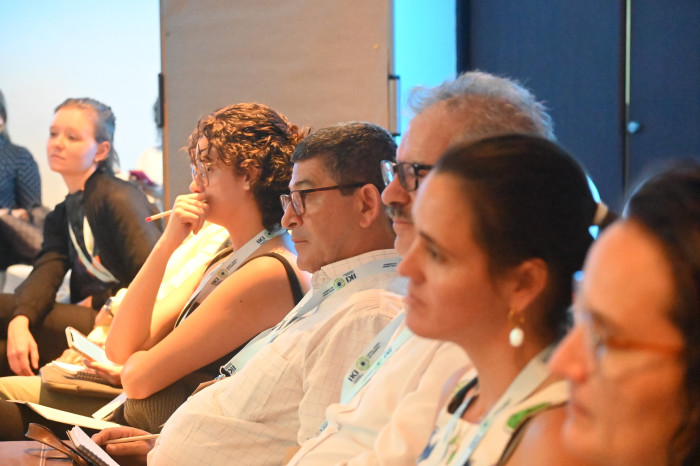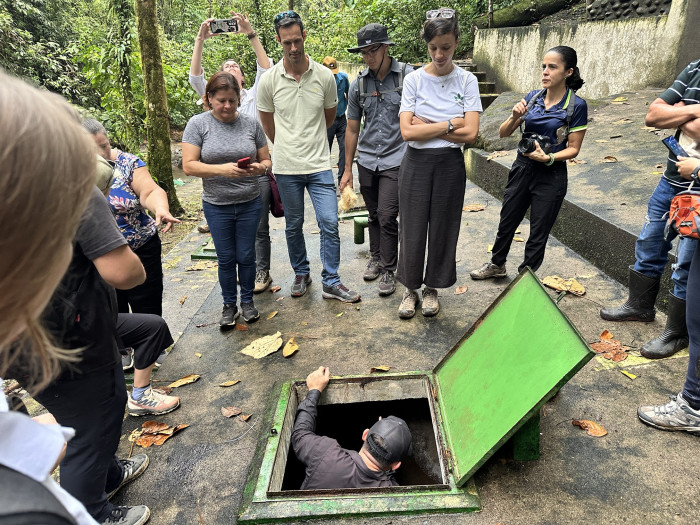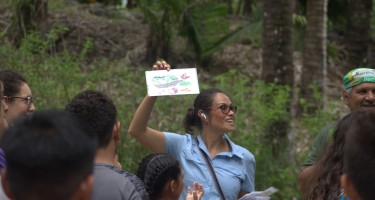IKI projects in Central America and the Caribbean strengthen regional cooperation
From September 17 to 19, 2024, San José, Costa Rica brought together more than 100 representatives from implementing organizations, partners, and beneficiaries of 24 cooperation projects funded by the International Climate Initiative (IKI) of the German government, to exchange achievements and best practices to connect, exchange, and replicate sustainable actions in the region.
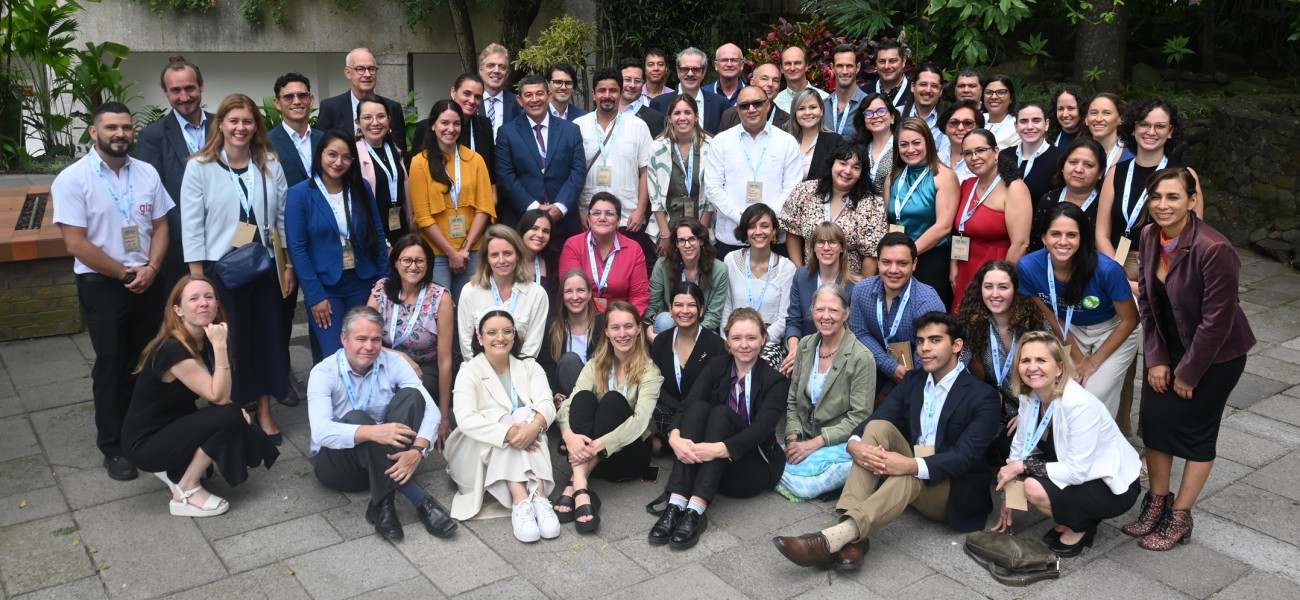
© Melisa Jerez, ACCIÓN Clima / GIZ Costa Rica
Day 1: Networking
Multiple networking spaces offered the opportunity to break the ice, engage in discussions and learn about the current project portfolio in the region. Later, strategic discussion groups opened doors to exchange on policy changes, challenges, regional cooperation, and funding mechanisms, with the aim of sharing experiences between projects, but also providing feedback and suggestions to IKI for the future cooperation with Central America and the Caribbean.
Participants highlighted concerns about gaps in funding for marine conservation initiatives, the political changes that have affected the region, but also made proposals, such as establishing more triangular cooperation projects, and seeking mechanisms to obtain more up-to-date scientific and policy information to facilitate project implementation and identification of priorities in the region.
© ACCIÓN Clima / GIZ Costa Rica
Day 2: Discussion and technical exchange
During the second day, parallel side events organized by IKI projects and ZUG fostered technical discussions and allowed for a deep dive into concrete actions, achievements, and lessons learned. Get to know the different sessions:
Jean Pierre Morales of the United Nations Development Programme (UNDP) designed a space to discuss how to implement and scale up the recommendations of the Task Force on Nature-related Financial Disclosures (TNFD) in investment strategies. With the support of specialists in sustainable finance and biodiversity, the aim was to build proposals that allow investors to align their financial flows with nature.
Petra Nieland, from the IKI Office at ZUG, and Kathrin Meyer, monitoring and knowledge management advisor of the ACCION Clima project of the German Development Cooperation GIZ, promoted a space for exchange and dialogue on monitoring and evaluation of IKI projects.
Participants identified the main challenges they have faced in M&E in their projects, such as indicators that are difficult to assess because of the tools required, projects with a large number of partners that make their management complex, and the changing political realities of the countries that can affect progress in project implementation. It was agreed upon to ask IKI for progressive meetings to rethink indicators to facilitate monitoring in mitigation projects and to create more spaces for the exchange of good practices between projects, so that each initiative can have a greater impact in the region.
Two of the smallest projects present at the workshop addressed an important theme: Joan Anne Kleypas and Laura Jiménez from the Raising Coral Costa Rica Association, and Giselle Brady from Bay Islands Association from Honduras invited to share emotional experiences related to biodiversity loss and to discuss possible solutions to encourage to move forward, as well as suggestions to face these adversities.
How to achieve collective hope and recognize that people are part of nature and the vision of a better future were some of the needs identified, while spaces for sharing feelings, education efforts, and recognizing that working on the issue has long-term impacts were some of the solutions proposed.
Erick Brenes, consultant for the NDC Action Project of the United Nations Environment Programme (UNEP), facilitated a session in which he assessed how, given the current market conditions, an innovative blended finance instrument is needed to achieve the energy transition of the industry in Costa Rica. Through a contextualization of the Costa Rican financial sector and its needs, a space for discussion was opened on how to act in the current scenario.
GIZ technical advisors Kathrin Meyer and Catalina Molina from the ACCIÓN Clima project, as well as Josefina Mena and Diana Ramírez from the EbA LAC program, provided a space for joint reflection on how to integrate and mainstream gender in international cooperation projects that work in biodiversity and climate change.
In discussion groups, participants highlighted the efforts already made to integrate work groups on gender issues, to study the participation of women in different sectors, to strengthen female leadership, and to make the work of women in their communities more visible. Those who participated in the space highlighted that there is still work to be done to include the LGBTQ+ population, as well as to achieve a more equitable participation of women in spaces and activities, while keeping in mind their care work.
In a context in which participants highlighted gaps between land and sea protection, Andrés Méndez and Valeria Zumbado, technical advisors of the GIZ Transforma-Innova project, sought to highlight the importance, challenges and opportunities of an integrated approach between the land and marine sector through the application of best practices, their measurement and the linkage with differentiated value chains.
Day 3: From theory to practice
After two days of discussion and exchange, it was time to see concrete impacts on the ground. Participants traveled to the municipality of Sarapiqui and the area of Los Santos to learn first-hand about the work and results of EbA LAC in the implementation of ecosystem-based adaptation measures and Transforma-Innova, which provides technical assistance to Costa Rican coffee farmers in producing a sustainable and low-emission product (read more here).
An event to put sustainability into practice
For the first time, the organizing team on behalf of GIZ, submitted the regional workshop to the certification process of Costa Rica’s Ecological Blue Flag Program in its category of Sustainable Events.
Through actions such as coordinating with the event venue to ensure proper waste, water and energy management, offering a completely vegetarian menu, and an extensive program focused on reusing materials, among others, the team achieved the maximum score of 100 points.
The annual regional meeting is organized by the ACCIÓN Clima project of the GIZ, which serves as an interface between the German donor and the cooperation projects being implemented in Central America and the Caribbean.
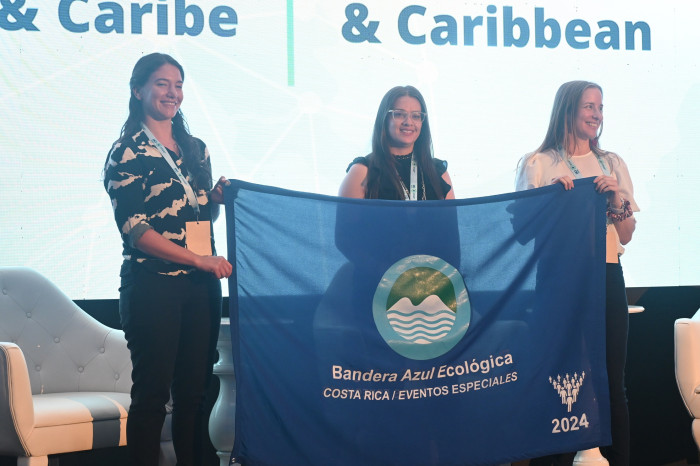
© GIZ Costa Rica
The annual regional meeting is organized by the ACCIÓN Clima project of the GIZ, which serves as an interface between the German donor and the cooperation projects being implemented in Central America and the Caribbean.
- Country: Antigua and Barbuda, Bahamas, Barbados, Belize, Costa Rica, Cuba, Dominica, El Salvador, Grenada, Guatemala, Guyana, Haití, Honduras, Jamaica, Nicaragua, Panama, Dominican Republic, Saint Kitts and Nevis, Saint Vincent and Grenadines, Saint Lucia, Suriname, Trinidad and Tobago
- Project:
- Contact:
Equipo interfaz IKI
